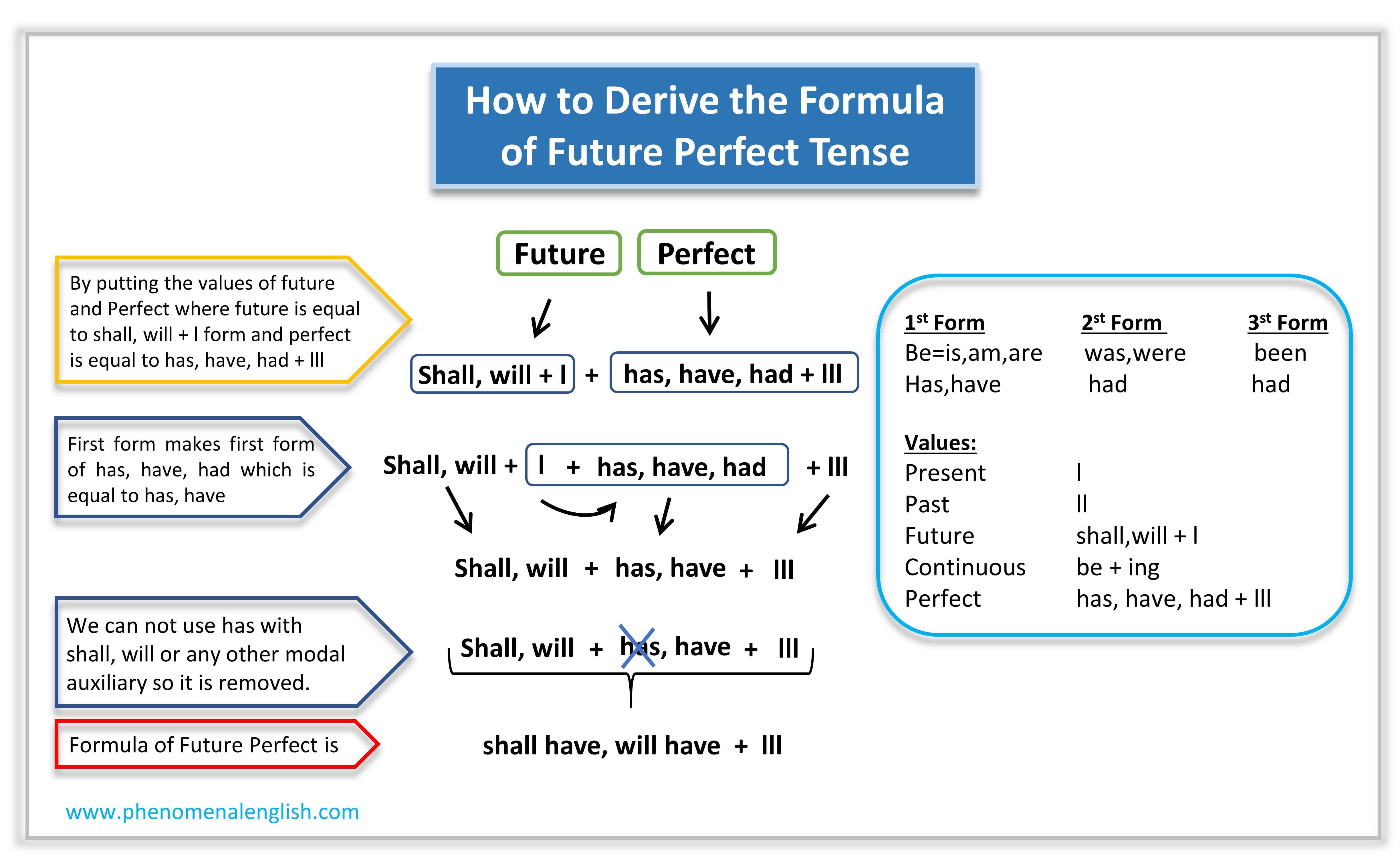Phenomenal English
Solution Destination to your Problems
Future Perfect
Definition of Future Perfect:
Future Perfect tense is used to express an action that must be completed before a mentioned reference of time in future.
By staying in future we look back in the past that is why it is used to talk about past in the future.
Usages of Future Perfect:
- To express an action that will finish in future but this action must have a deadline.
- By the next June, I shall have completed my book.
- Archi will have flown to America in the coming month.
- He will have written his report by the end of this month.
- We use Future Perfect to talk about two simultaneous events happening in future in other words an event that will be completed before another event occures.
- Doctor will have treated the patient before he dies.
- The coaches will have prepared the team before world cup starts.
- Students will have completed their course before the term ends.
- To express faith, believe or confidence of happening something in past of future.
- He will have recovered by now. (Here one is sure about his recovery)
- Franklin will have got married by then. (Here one is sure about his marriage)
- By the time, you will have paid the money. (Here one is sure about payment)
What is difference between Future Perfect and Simple Future
We use Future Perfect when the action occurred must have time marker, time reference or deadline in the future. Future Indefinite is used when there is no time marker or deadline in future.
Examples
Jessy will have reached office by now. (Future Perfect)Jessy will reach office. (Future Indefinite)
Formation of Future Perfect:


Affirmative Sentences
In positive or affirmative sentences of Future Perfect Tense we use shall have, will have and past participle (3rd form) of verb. Shall have is used with 1st person i.e (I, we) and will have with 2nd and 3rd persons i.e (you, he, she, it, they, singular names and plural names).
Examples
- She will have completed her thesis by next week.
- Teacher will have assigned grades of the whole class till tomorrow.
- Our team will have won the match before lunch break.
- I shall have started my new journey by then.
- The doctor will have treated the patient before he dies.
Interrogative Sentences
In interrogative sentences of Future Perfect Tense we drag shall, will before subject and use past participle (3rd form) of verb. Shall have is used with 1st person i.e (I, we) and will have with 2nd and 3rd persons i.e (you, he, she, it, they, singular names and plural names).
Examples
- Will Sara have completed her degree by June?
- Shall I have written articles for my website before he comes?
- Will Bobby have gotten the treatment before doctor comes?
- Will team have scored three goals before 1st half?
- Shall I have watched two movies by the next Sunday?
Negative Sentences
In negative sentences of Future Perfect Tense we use not after shall, will and past participle (3rd form) of verb. Shall have is used with 1st person i.e (I, we) and will have with 2nd and 3rd person i.e (you, he, she, it, they, singular names and plural names).
Examples
- My mother will not have cooked food before guests arrive.
- Chief guest will not have delivered his speech by the time you arrive.
- I shall not have completed my course by next three month.
- People will not have welcomed the guests before the president comes.
- Children will not have watched the magic show by then.